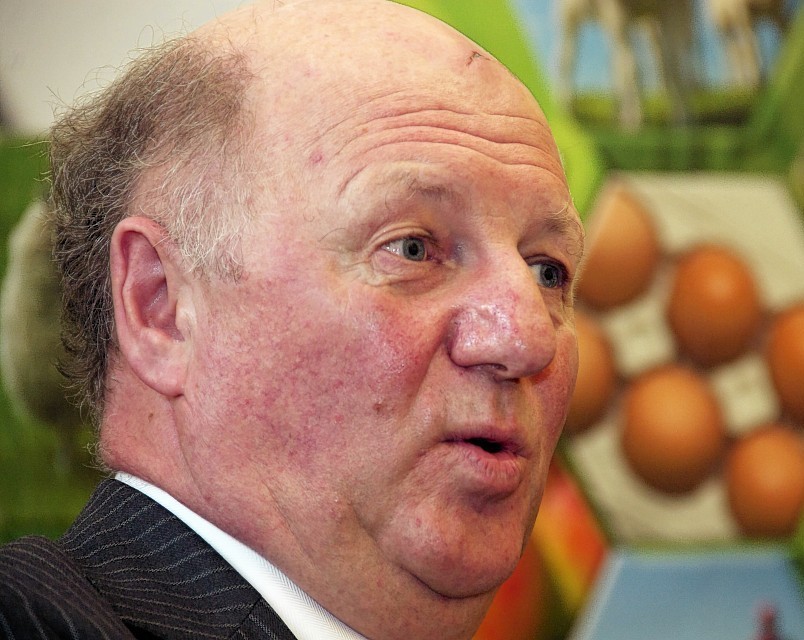A cut in milk prices paid to farmers was labelled “savage” by the union as First Milk chairman Sir Jim Paice resigned in the wake of the co-operative’s cash flow problems.
The Glasgow-based co-operative said it will further reduce the price paid to its farmer members by 1 pence per litre as of 1 July, while the former Conservative minister admitted the group “needs more people with real commercial and business skills”.
NFU Scotland President Allan Bowie said dairy farmers were under “intolerable pressure” due to the price cuts and warned that more family dairy farms would be forced to “review their future”.
He welcomed Sir Jim’s departure which comes after Kate Allum was recently replaced as chief executive by Mike Gallacher.
Mr Bowie said: “First Milk’s previous business model has failed the company and its members.
“Both the former CEO and now the Chairman have recognised this failure and resigned.”
Sir Jim, who previously served as Defra farm minister at the peak of the last milk price crash in 2012, said the board of the group “needs more people with real commercial and business skills”, adding that the further price cut was a matter of “regret”.
Sir Jim said he will remain with the business until a new chairman is found.
Recently it emerged the former Conservative minister was paid £1,800 a day to sit on the company board as chairman as the co-operative faced fire from Scottish ministers for delaying payments to farmers.
The Glasgow-headquartered farmers’ co-operative has been at the centre of the current dairy crisis, which resulted in the Press and Journal launching a campaign to help beleaguered dairy farmers.
Rural Affairs Secretary Richard Lochhead said he would be in “urgent touch” with bosses at First Milk about the reduction, which will see
farmers supplying First Milk receiving between 14 and 16.5p per litre for their milk.
The dairy company, which is owned by British farmers, last week confirmed a loss in the region of £22million for 2014/15.
It has recently launched a turnaround plan aimed at reviving the fortunes of the struggling dairy sector.
Mr Lochhead said: “A further cut in payments is deeply disappointing and a further blow to the 350 or so Scottish dairy farmers that supply First Milk.
“Everyone hoped the worst was over and this comes just when a turnaround programme is being put in place by the company.
“It’s clear that First Milk’s turnaround programme must deliver soon. Meanwhile, the Scottish Government is committed to doing all we can to help dairy farmers during these volatile times and we are working hard to implement our dairy action plan.”
In a statement Sir Jim said : “While the turnaround actions that have been taken over the last two months have improved our trading position, we also have to factor in the impact of lower commodity prices. I know this is further disappointing news, which I regret.
“With the turnaround programme now gathering pace and the timescales for an external review agreed, I believe the time is right to announce my intention to step down as chairman of First Milk.
“In my letter last week I said that I believe the board needs more people with real commercial and business skills. That means I think there has to be significant change in the constitution of the board, and that includes the chairman role.”
Mr Bowie added: “It is tragic that these further savage price cuts to First Milk members will see another tranche of family farms with a long history in dairying forced to review their future in milking cows. Some may hold on until cattle are housed but for others, this latest cut of a penny a litre will leave many needing to take decisions now.
“I urge Mr Gallacher and his board to up their engagement with their members at this desperate time so that its members can make crucial decisions on the future of their farming businesses.
“We expect the details of the turnaround plan to be signed off by the First Milk Board in the first week of July and we will sit down with Mike Gallacher and his team to see how NFUS can help in its delivery.
“We recognise that market conditions are not helping First Milk and continue to make the situation more difficult. If there is to be positive growth within the industry then First Milk farmers need to be given support from stakeholders and Government.”
